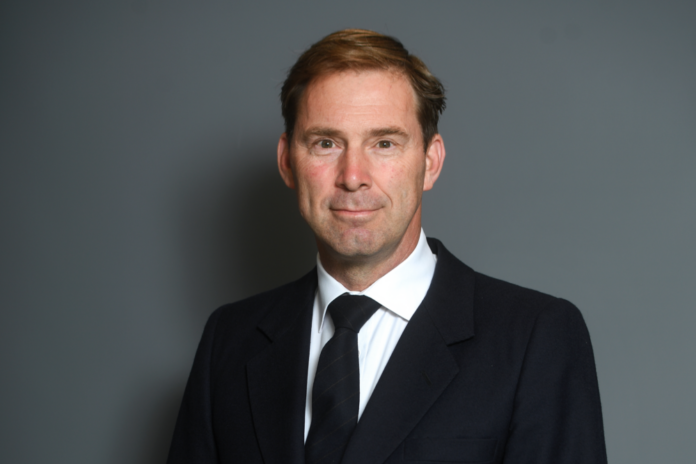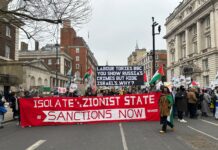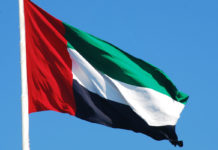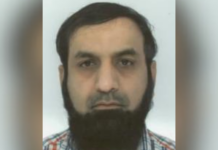The prominent Conservative MP Tobias Ellwood has praised the Islamic Emirate of Afghanistan for transforming the nation and has urged the British government to re-establish formal relations.
Ellwood, who is a former soldier, government minister and is the current chair of the Defence Select Committee, made the comments after a visit to Afghanistan sponsored by The Halo Trust, a mine-clearing charity.
Writing in The Telegraph, he said: “Two years after the Taliban forced the West to scuttle from Kabul, I’ve just returned from an Afghanistan which is totally transformed. Hold your breath. Security has vastly improved, people are free to travel and the widespread corruption that impacted at every level of former President Ashraf Ghani’s government has all the disappeared. And the dreaded black market opium trade that blighted the nation’s economy has seemingly gone.
“This war-torn nation has not experienced relative peace like this since the 1970s. And it shows. The congested streets are bustling with life as everyone goes about their business – free from the infinite checkpoints and perpetual fear of violence. The Taliban authorities are no more visible than our own police are in London.”
Ellwood did criticise the IEA’s restrictions on female work and education, but said it could be used as a tool to negotiate with the Afghan authorities.
He said: “The real challenge lies ahead: the decision whether or not to re-engage with the victors of this long-drawn conflict. The West now holds international aid, including the $9bn in frozen Afghan assets abroad. The British Embassy is closed for political rather than security reasons. Of course the boycott endures because of the Taliban’s regressive laws against women’s education and employment…
“If the West continues to sulk we could be making another blunder which pushes the nation to a fiscal cliff potentially igniting another cycle of instability, terrorism and mass migration. A more pragmatic strategy is necessary. The Taliban’s restrictions on women’s rights may well serve as a negotiation tool for a shared understanding. But such a possibility will remain unknown until we wake up. The first step is reopening our embassy. The second is to get real. Afghanistan’s future could be war again or life as a Chinese vassal. The middle way I saw – however queasy we feel about it – needs us to rethink and re-engage.”
Subscribe to our newsletter and stay updated on the latest news and updates from around the Muslim world!
Along with the US and other NATO allies, the UK invaded Afghanistan in October 2001, following the September 11 attacks.
After the fall of the first Islamic Emirate, the UK contributed troops to the ISAF, established by the United Nations Security Council in December 2001 to “maintain security” in Afghanistan.
British forces were initially deployed to the capital, Kabul, and the surrounding areas. In 2006, the UK took over the command of NATO’s Regional Command South in Afghanistan, with responsibility for security in Helmand Province.
The UK deployed a substantial number of troops to Afghanistan, with peak troop levels reaching around 9,500 in 2011.
In April 2021, US President Joe Biden announced the withdrawal of American forces from Afghanistan, leading to the eventual collapse of the Afghan government and a rapid Taliban takeover.
As part of the broader withdrawal, the UK, along with other NATO allies, also withdrew its remaining troops from Afghanistan.
Since its defeat in August 2021 the UK has had no formal relations with the Islamic Emirate of Afghanistan.























